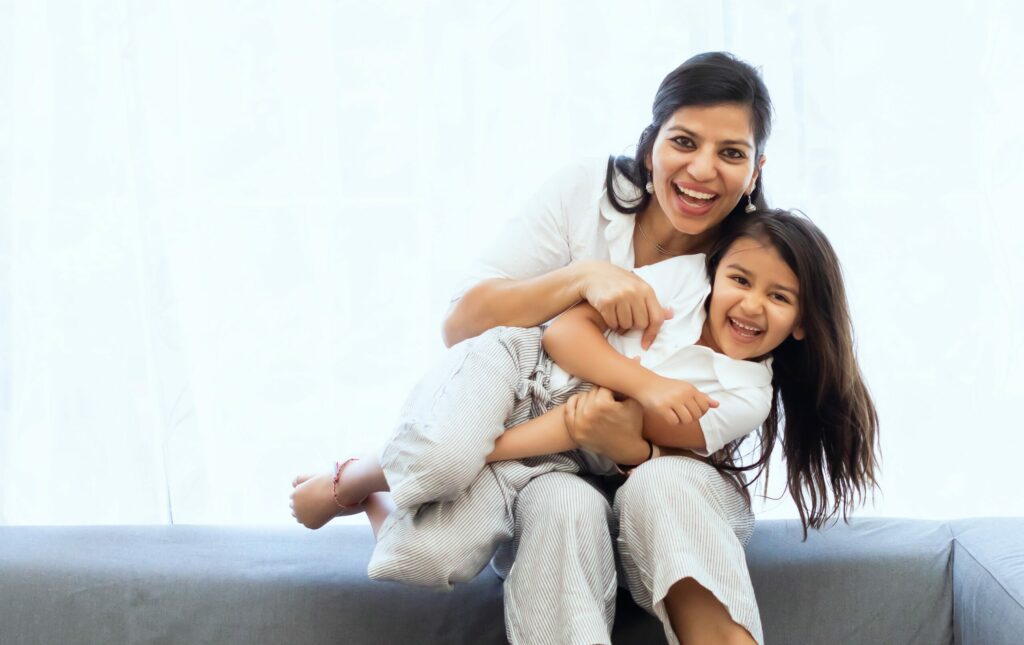Every one of us has an area of life where we feel less confident. As caring, nurturing parents we try our best to help build confidence in our children. That’s why I thought you’d like to read my top confidence boosting tips for children.

As parents, we’ve most probably all been there. Our child loses confidence in themselves: a friendship ends, they move class, they lose at sport. Whatever the reason losing confidence can hit our little ones hard, so what can we do to build confidence in our children? After bringing up my own family and working with children for more than 20 years, I’ve found some ways that always seem to get children feeling better about themselves and their abilities. Happy children thrive in life and thrive in learning. That’s why I think confidence is key!
Help your child learn to do things by modelling and working alongside them
There are always new things for children to learn, both in and out of school and what child doesn’t like joining in with their parents? Support them by modelling ideas giving them a structure to copy and learn from. Or be alongside them as they try out new skills such as riding a bike, planting seeds, drawing or writing. Let them have a chance to try, learn and build their self-esteem.
Use smart praise
It’s great to praise children. It can be a great way of building self-esteem. Smart praising takes things up another notch and gives a direction and reason for praise: “You are making great choices in your writing.” As well as the feel-good factor, we’re all more put more effort in when we know that we’re succeeding at something.
Praise effort
Avoid focusing praise only on results (such as getting an A) or fixed qualities (such as being smart or athletic). Instead, praise for effort, progress, and attitude. For example: “You’re working hard on that project,” “You’re getting better and better at these spelling tests,” or, “I’m proud of you for practicing piano — you’ve really stuck with it.” With this kind of praise, children put effort into things and work toward goals. When kids do that, they’re more likely to succeed.
Be a good role model
When you put effort into everyday tasks (like raking the leaves, making a meal, cleaning up the dishes, or washing the car), you’re setting a good example. Your child learns to put effort into doing homework, cleaning up toys, or making the bed.
Modelling the right attitude counts too. When you do tasks cheerfully (or at least without grumbling or complaining), you teach your child to do the same. When you avoid rushing through chores and take pride in a job well done, you teach your child to do that too.
Ban harsh criticism
The messages children hear about themselves from others easily translate into how they feel about themselves. Harsh words (“You’re so lazy!”) are harmful, not motivating. When children hear negative messages about themselves, it harms their self-esteem. Correct children with patience. Focus on what you want them to do next time. When needed, show them how.
Focus on strengths
Pay attention to what your child does well and enjoys. Make sure your child has chances to develop these strengths. Focus more on strengths than weaknesses if you want to help your child feel good about themselves. This improves behaviour too.
Let kids help and give
Self-esteem grows when children get to see that what they do matters to others. Children can help out at home or do a favour for a friend. Helping and kind acts build self-esteem and other good feelings.
Do you have some great ways to develop confidence? We’d love to hear your thoughts in our Facebook Community
